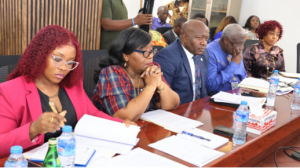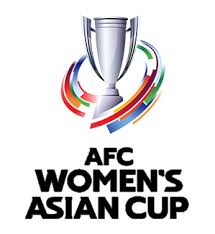The Asian Football Confederation (AFC) announced on Friday, June 16, 2023, a significant change in venue for the upcoming Women’s Asian Cup qualifiers. Originally slated to take place in Amman, Jordan, from June 23 to July 5, the Group A qualifying matches have been relocated to Qatar. The revised schedule now sets the matches from July 7 to 19. This decision stems from the escalating tensions and volatile security situation in the Middle East, particularly the intensified exchange of airstrikes between Israel and Iran, raising concerns about the safety and well-being of participating teams and officials. The AFC cited the “ongoing situation” as the primary reason for the shift, promising to release further details regarding specific venues and match schedules in due course. The “logistical concerns” raised by participating teams, as highlighted by the Football Association of Singapore, further underscores the complexities and challenges posed by the regional instability.
The geopolitical backdrop against which this decision unfolds involves a marked escalation in hostilities between Israel and Iran, two regional powers with a history of conflict. Recent weeks have witnessed an intensification of airstrikes between the two nations, raising fears of a wider conflagration that could potentially draw in other countries, including the United States. This heightened tension created an environment deemed unsuitable for hosting an international sporting event, prompting the AFC to prioritize the safety and security of all involved parties. The choice of Qatar as the alternative venue likely reflects its perceived stability and well-established infrastructure for hosting major sporting events, demonstrated most recently by its hosting of the 2022 FIFA World Cup.
The participating teams in Group A, comprising Jordan, Singapore, Iran, Lebanon, and Bhutan, will now navigate their qualification journey in a different setting. The rescheduling of the matches provides the teams and the AFC with additional time to adjust to the change in venue and finalize logistical arrangements. The qualifying process remains crucial for these nations, as the winner of each of the eight qualifying groups secures a coveted spot in the 2026 Women’s Asian Cup, scheduled to be held in Australia. The disruption caused by the venue change underscores the far-reaching impact of geopolitical tensions on international sporting events, highlighting the challenges faced by organizing bodies in ensuring the safe and successful execution of such tournaments.
The relocation of the Women’s Asian Cup qualifiers to Qatar also underscores the complex interplay between sports and geopolitics. Sporting events, often viewed as platforms for international cooperation and camaraderie, can become vulnerable to the vagaries of political tensions and conflicts. The decision to move the qualifiers reflects the AFC’s recognition of this reality and its commitment to prioritizing the safety and security of all participants. The choice of Qatar, a nation with a relatively stable political environment and a proven track record in hosting major sporting events, signifies a pragmatic approach to mitigating the risks associated with the “ongoing situation” in the Middle East.
The Women’s Asian Cup, a prestigious tournament showcasing the burgeoning talent in women’s football across the continent, represents a significant milestone for participating nations. For teams like Jordan, Singapore, Iran, Lebanon, and Bhutan, qualifying for the main tournament provides an opportunity to compete against the best in Asia and elevate the profile of women’s football in their respective countries. The change in venue, while disruptive, does not diminish the importance of the qualifying stage, which remains a critical pathway to the 2026 showpiece in Australia. Hosts Australia, along with South Korea, Japan, and defending champions China, have already secured their places in the tournament, awaiting the successful qualifiers from the eight groups.
The AFC’s decision to relocate the Women’s Asian Cup qualifiers from Jordan to Qatar reflects a proactive response to a complex and evolving geopolitical landscape. By prioritizing the safety and security of all participants, the AFC has demonstrated its commitment to ensuring the smooth and successful execution of the qualifying stage. The change in venue, while presenting logistical challenges, underscores the importance of adaptability and resilience in the face of unforeseen circumstances. As the qualifying matches approach, the focus will shift to the on-field action, where the participating teams will strive to secure their place in the 2026 Women’s Asian Cup and contribute to the continued growth and development of women’s football in Asia and beyond.














